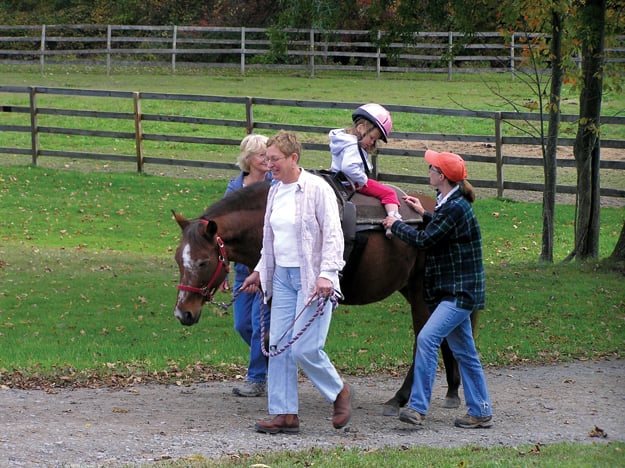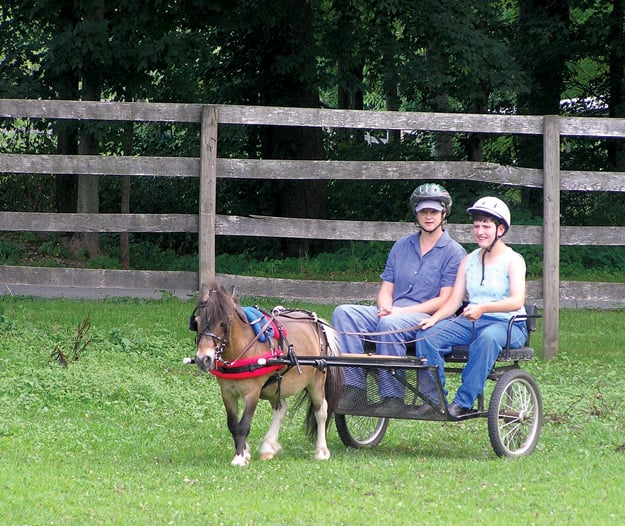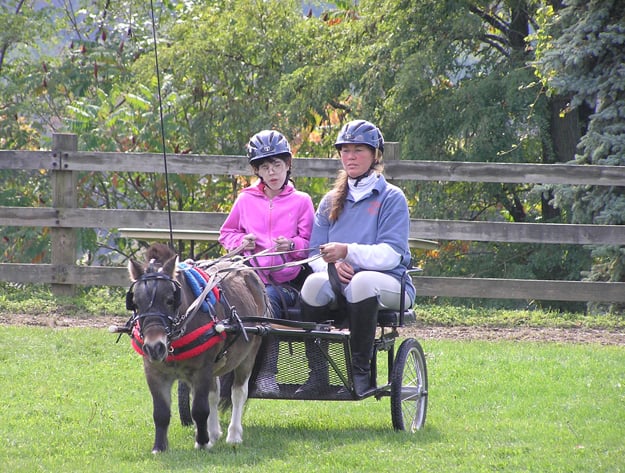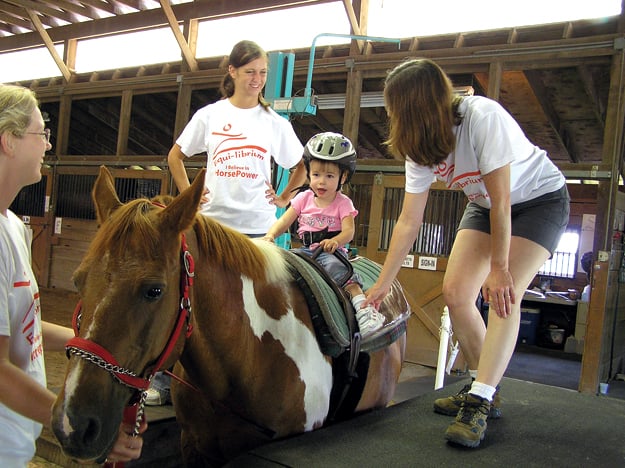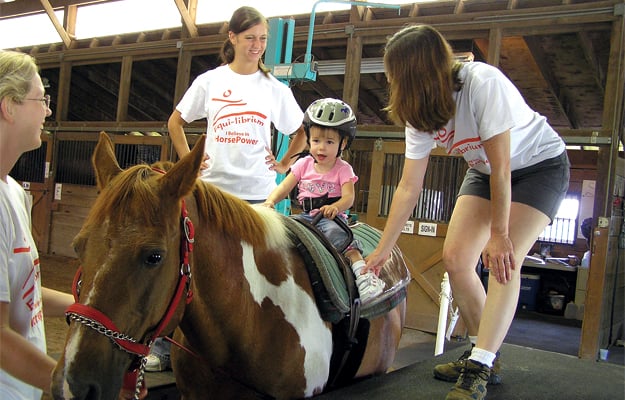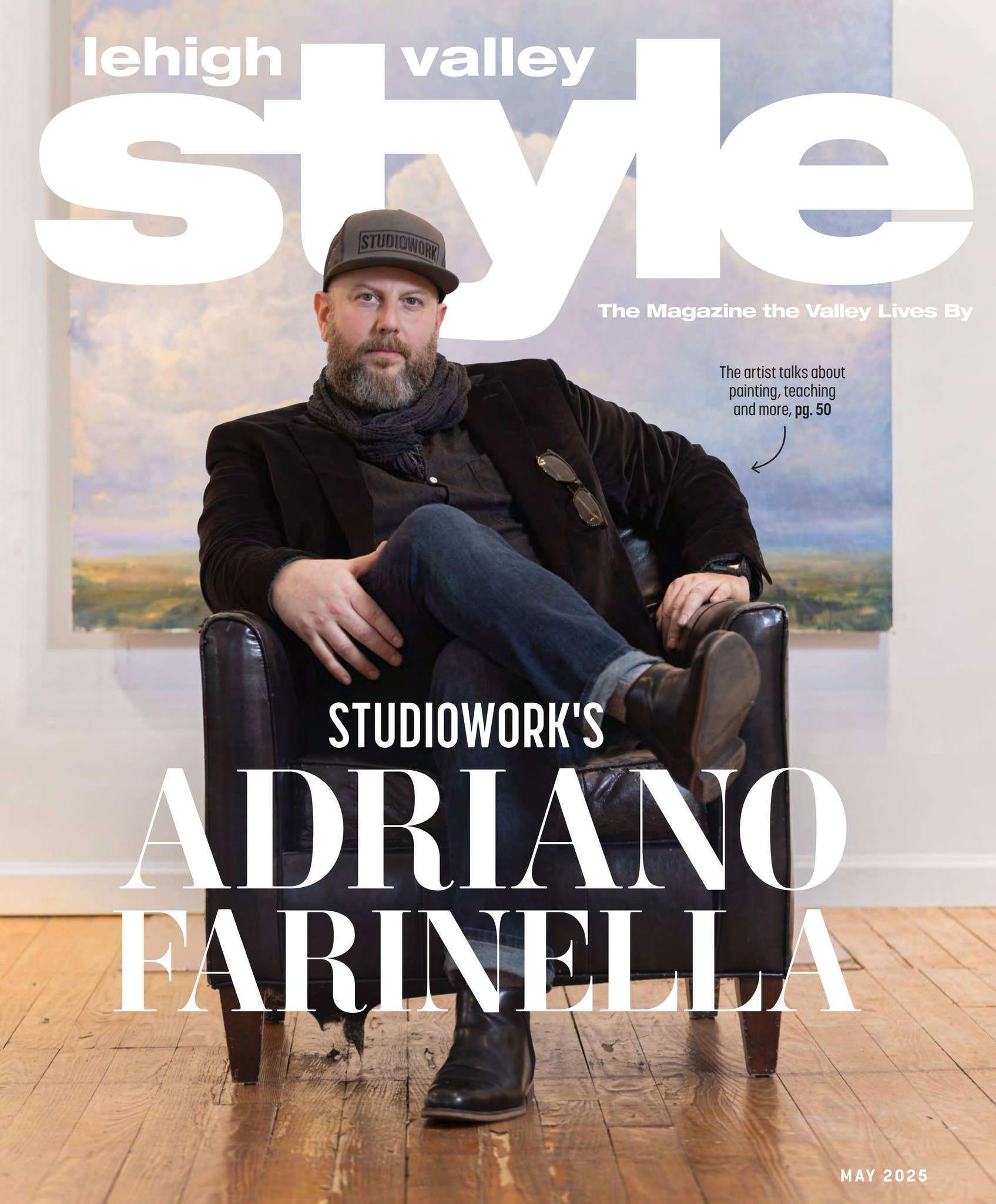
As the New Year is a time for making fresh starts, some people not only seek to enhance their own lives, but look for opportunities to enhance the lives of others. For some, this might mean making a resolution to volunteer at a food bank or help a neighbor in need.
But for many Lehigh Valley residents and organizations, good deeds are something they do year-round. These Valley residents are the inspiration for this, our new Good Neighbors column, which highlights organizations and people in our community who make the Valley a better place to live and work.
One such organization seeking to enhance quality of life for those with special needs is Equi-librium. Offering equestrian-assisted activities for adults and children with disabilities, Equi-librium improves quality of life by helping individuals with special needs become more independent.
Equi-librium currently works with children and adults between the ages of 2 and 84. The program began in 1982 as Monroe County Riding for the Handicapped and served just five children. The program grew in the '80s and '90s as Easter Seals RISE (Riding Instruction for Special Equestrians).
When Easter Seals RISE ended, parents with children in the program founded the nonprofit organization Equi-librium. The group celebrated its tenth anniversary last fall and now offers year-round equine-assisted activity programs for hundreds of riders each year.
One parent involved with its founding was Polly Beste, chairman of Equi-librium's Board of Directors. She has seen the benefits of equine-assisted activities firsthand with her daughter Lauren, who was diagnosed with a traumatic brain injury (TBI) at birth.
“This program has been phenomenal for her,” says Beste, noting that her daughter has been a participant in Easter Seals RISE and Equi-librium since the age of eight, working to improve her balance, physical movement and gain a sense of independence.
Hippotherapy: A form of physical, occupational and speech therapy in which a trained therapist uses the movement of a horse for therapeutic purposes. Equi-librium sessions are led by a therapeutic driving or riding instructor whose training is based on hippotherapy theory.
A PATHway to therapy
As a member of the Professional Association of Therapeutic Horsemanship (PATH), Equi-librium's program is based on hippotherapy, a type of therapy that uses the movement of horses to address disabilities and impairments. These disabilities include autism, ADHD, cerebral palsy, Down syndrome, traumatic brain injury (TBI), mental retardation, spinal cord injuries, multiple sclerosis, muscular dystrophy, and visual, hearing and language impairments.
Because of the wide range of disabilities addressed at Equi-librium, each participant is carefully assessed for their current needs and goals before beginning the program.
“Each individual who comes here has their own individual goal,” says Pat Sayler, president and CEO of Equi-librium. A four-year-old with autism might have trouble speaking or focusing in a noisy setting; his goal might be to improve his sense of focus and communication skills. For many children, working with horses offers a uniquely calming, motivational environment that encourages growth and learning.
“We have had children who have never spoken. Some of these kids have actually started to talk on the horse,” she says, noting that horses respond to verbal commands such as “stop” and “walk.” When a child realizes that the horse won't move without this command, it can sometimes be enough motivation for the child to speak.
Lessons center less on traditional riding skills and more on balance, coordination and cognitive skills. While many children and adults do learn to ride as a part of their sessions, the program also offers riding carts for those who are unable or unwilling to ride.
“Many of these kids wouldn't sit still on a therapy ball. This is a good way for them to get physical therapy,” explains Diane Morris, a therapeutic driving instructor. For children who can't or won't speak, horses also have a way of breaking through and communicating with the child. “Horses are non-verbal, too. They seem to bond with these kids and are very gentle. They're very accepting.”
Hippotherapy is also used to treat physical disabilities and reduced motor skills, using the movement of a horse to increase strength and flexibility. It's difficult to ride a horse without holding yourself up straight, Morris notes. This effort can be good therapy for children and adults with poor core strength. Trainers can also use the physical task of guiding a horse or cart with reins to provide physical therapy for the arm or hand.
“So many of our riders are therapied out. Here they are getting three-dimensional movement on a horse,” Sayler says. “They're still getting therapy, but they're having a blast. They're getting a whole lot of benefits without realizing it.”
Who can benefit?
Adults and children with all types of disabilities are eligible to take part in the programs at Equi-librium. Sessions take place in 10-week increments.
In addition to private and group lessons, Equi-librium works with several local schools. Students can take part in riding lessons while incorporating academic lessons such as math or reading into their visit. The organization also hosts summer camps for local Head Start groups, allowing 4-year-olds to learn cooperation and structure outside of the classroom.
“At the end of the 10 weeks, they go home with a sense of what they can accomplish. It's been a tremendous opportunity for the Head Start children,” allowing them to focus on learning, behavior and attention spans, Sayler says.
Equi-librium offers riding and driving equipment for children and adults of all ages. Even the youngest children who are frightened of horses enjoy working with their miniature horse, Lil' Bear.
“Our biggest population is autism,” she adds, noting that children who begin therapy for autism-spectrum disorders early in life often have a better long-term outcome. Equi-librium currently works with more than 100 children and adults on the autism spectrum each week.
The group also works with young adults who are transitioning from high school to life in the community. One such student is currently working at the barn, feeding and caring for the horses.
“It's done in the hopes that [the participant] will find a job with similar skill requirements,” Sayler says. “She's very motivated and loves it here. Our ultimate goal is that these skills will carry over into their daily lives. The skills that they attain here stick with them.”
Learn more about Equi-librium
As Equi-librium continues to grow and expand its outreach, they are seeking volunteers to support their mission. More than 175 active volunteers currently work with the organization. Volunteers can assist during riding sessions or help with general barn or office work.
Equi-librium is a 501(c)(3) nonprofit corporation. All donations are tax deductible. To learn more about supporting Equi-librium, or to request information about sessions for a disabled child or adult, visit equi-librium.org, or call 570.992.7722.
Therapy on many levels
Before beginning sessions at Equi-librium, a caregiver must complete an application detailing their child or adult's disabilities, their current abilities and difficulties, and any goals that the caregiver might have. This application allows riding and driving instructors to tailor each session to the participant's personal needs and abilities.
“Parents can individualize what their priorities are, and we try to incorporate these priorities into each lesson,” Sayler says. For example, a parent might want their child to communicate more. An adult with traumatic brain injury (TBI) might need to work on their balance and coordination. But for many caregivers, the confidence and independence gained by working with horses is their ultimate goal.
“These are simple things to us, but so important for families who want to integrate their child into the community,” she says. “To watch the kids learn—it's very exciting.”
Beste's daughter Lauren prepares for each driving lesson by gathering Lil' Bear's harness. This harness has buckles and straps that must be fastened correctly before driving Lil' Bear's carriage, which can be a difficult task for students who need to improve their fine motor skills. Today, Lauren eagerly works alongside her instructor as they prepare Lil' Bear's harness, using both hands to complete the task—a marked improvement over her motor skills just a few months ago, Beste says.
“She doesn't get to have the fun part, to ride the horse, until she fastens the buckles. These are kids who wouldn't do physical or occupational therapy, but they'll do this because they want to have fun with the horses,” Morris adds.
For today's lesson, Lauren works with puzzle pieces strategically set up around the riding area. She carefully directs Lil' Bear to each puzzle piece then picks up the pieces to complete the puzzle. This simple lesson offers several forms of therapy at once. The movement required to grasp a set of reins to guide the horse to each stop is a form of physical therapy. The task also tests her visual and cognitive skills as she completes the puzzle.
The confidence, independence and motor skills that Lauren has gained through equine-assisted lessons benefit both Lauren and her family, who want her to be as independent and fulfilled as possible.
“These kids are much more independent. It makes them feel good and it makes life easier for them and their caregivers,” Beste says. “I don't know what we would do without it. For most of these kids who come here, it's the only activity they have,” she adds, noting that childhood activities like sports aren't always accessible for disabled children. “This is their thing, and they can be good at it.”
Sessions such as those offered at Equi-librium also offer a sense of structure in an otherwise chaotic world for many disabled children and adults. Meeting with a therapeutic riding instructor each week offers a set structure in their daily life. Each lesson also offers a sense of boundaries and rules—rules that must be followed for both learning and safety reasons.
The future of Equi-librium
While Equi-librium's lessons are currently offered on a farm in Snydersville, the organization is raising funds to build a permanent home in Wind Gap on 40 acres of donated land. They hope to break ground this spring and begin offering lessons as early as fall 2012.
Once this move is complete, Equi-librium hopes to double their lesson capacity from four to eight students per hour and offer a formal classroom space for school groups. Their new site will also offer a spacious indoor riding area, allowing students to continue their therapy year-round. They also plan to add a sensory trail for vision- and hearing-impaired riders featuring touch and color stations.
As the only full-time therapeutic horsemanship organization in the area, members agree that this increased capacity and classroom space will have a positive impact on the community and its special-needs students, Sayler explains. “There are few local organizations that offer quality of life programs for people with disabilities.”
